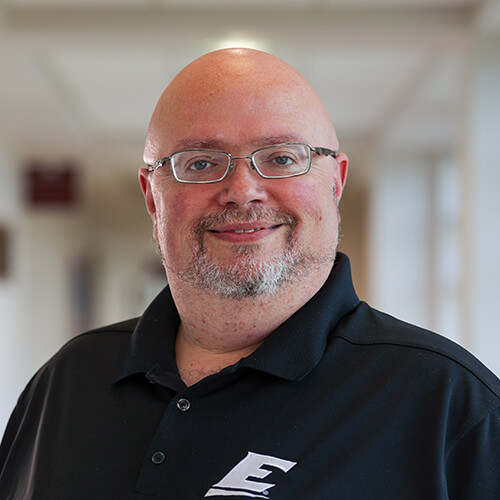
Master of Arts in Clinical Mental Health Counseling
Department of Clinical Therapeutic Programs
College of Education & Applied Human Sciences
Master of Arts in Clinical Mental Health Counseling
Department of Clinical Therapeutic Programs
College of Education & Applied Human Sciences
On-Campus
Program
60 Credit Hours
to Graduate
Full-Time, In-State Tuition
$541 Per Credit Hour
Low-Cost Textbooks
For All Students
Empower Others to Accomplish Their Goals
Hone the competencies needed to become a Licensed Professional Clinical Counselor and engage in helping relationships with others as a responsible, growth-oriented professional. EKU’s Master of Arts in Clinical Mental Health Counseling prepares professional counselors to work in a variety of mental health settings, including comprehensive care centers, regional mental health centers, hospitals, and other settings in which mental health services are provided.
Learn More
Career Outlook
Employment of substance abuse, behavioral disorder, and mental health counselors is projected to grow 18 percent from 2022 to 2032.
– U.S. Bureau of Labor Statistics
Why EKU?
Curriculum & Admission
EKU’s clinical mental health counseling curriculum prepares you for a variety of rewarding career options that will allow you to improve the lives of others and become a leader in your field.
Clinical mental health counseling courses are taught by instructors with real-world experience and designed to provide skill sets that can be applied to diverse individuals with unique needs. Courses include counseling theory and practice, process and basic techniques of counseling, principles and practices of clinical mental health counseling, group counseling, child and adolescent counseling, addiction disorders counseling, family counseling, diagnosis and treatment, and tests and measurements.
Enrolling & Advising Information
EKU’s College of Education and Applied Human Sciences is committed to delivering high-quality enrollment and academic advising for our students. We strive to create an atmosphere of mutual trust and meaningful engagement to help students reach their academic goals and have a rewarding educational experience.
Interested in enrolling? Reach out to your enrollment advisor.

Additional Contact Info
Admissions: 859-622-2106
Academic Testing: 859-622-1281
Big E Central (Financial Aid & Student Account Services): 859-622-2361
Military & Veterans Affairs Office: 859-622-2345
Student Stories & Features
Quick Links
Upcoming Events
Provost's Leadership Institute
High School Honor Band Festival
News & Updates
Making Every Word Count With Dyslexia Research
EKU Climbs the Ranks for Best Public Affairs Program
Related Programs

M.S. in Psychology – Applied Behavior Analysis
Common Job Titles: behavior analyst, senior therapist, behavior consultant
Modalities: online
Credit Hours: 43
Contact Information
Department of Clinical Therapeutic Programs
Wallace Building
Room 201
4366 Kit Carson Drive
Richmond, KY 40475
859-622-1125
cou.csdoffice@eku.edu




